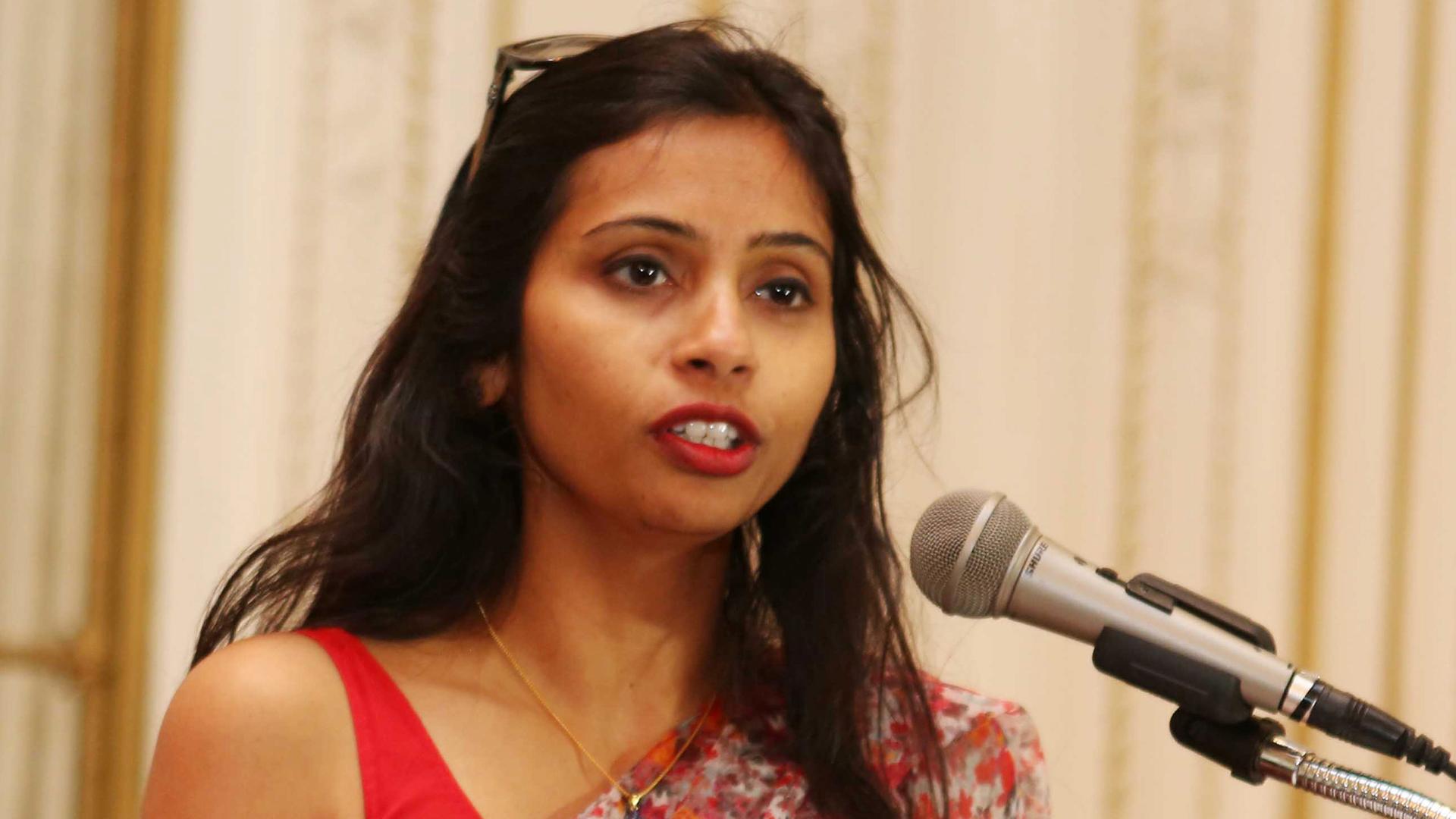India gets even for its indicted diplomat by expelling a US diplomat
Devyani Khobragade at a Rutgers University event at India’s Consulate General in New York in June 2013.
The tit-for-tat diplomatic dispute between India and the United States took another turn Friday, with India ordering a US diplomat to leave Delhi.
Meanwhile, the Indian diplomat at the center of the dispute, Devyani Khobragade, has now left the US, despite being indicted by federal authorities in New York on Thursday for human trafficking.
Khobragade was initially arrested in New York last month on charges of visa fraud. She allegedly doctored an application for a US visa for a housemaid from India, Sangita Richard. However, the indictment unsealed Thursday presented a much more serious case, indicating that the maid escaped exploitative conditions and sought sanctuary at a human trafficking shelter. Khobragade's job as India's deputy Consul General in New York was not senior enough to qualify for diplomatic immunity.
That hasn't prevented a wave of outrage in India, mostly over the way Khobragade was treated. She was picked up outside her child's school and led away in handcuffs, then allegedly strip-searched and confined in a cell with "common criminals."
India retaliated with restrictions against US diplomats in Delhi and by canceling high-level talks.
"The [Indian] government certainly sees this as a huge affront to Indian pride," says the BBC's Rahul Tandon in Kolkatta. But he also notes this is an election year in India, and "the government is not doing well in the polls, and needs to appear strong."
"Whether it is America or anybody, India is not going to take things lying down," said a leader of India's ruling Congress Party, P.C. Chacko. "We have retorted in the strongest measure possible and that has produced results, also." The results he meant were the successful departure of Khobrogade from the US.
"She was asked to leave the country," says retired ambassador Nicholas Burns. Burns is a former deputy Secretary of State and currently professor of the Practice of Diplomacy and International Politics at Harvard's Kennedy School of Government.
"There was a diplomatic compromise of sorts … The United States agreed she would be transferred to the [Indian delegation at the] United Nations — at least for one day — as that would give her immunity, because officials attached to the UN do have immunity. But then the US State Department said you must leave the country immediately. So she was ordered to leave the country.
"So she's back in India. If she returns to the United States at any time in the future, that indictment would still stand and she'd have to face charges. This is complicating for her, as her husband is a US citizen, as are her children." Her family is expected to follow her to India.
Indian politician P.C. Chacko said, "We have proved that nobody can take India for granted."
But Ambassador Burns has a word of caution. "I think the Indian politicians have to be a little bit careful here that they don't unduly antagonize the United States. This action today of ordering out an American diplomat was completely unwarranted, and it's unfortunate to see the Indian government take this step."
Every day, reporters and producers at The World are hard at work bringing you human-centered news from across the globe. But we can’t do it without you. We need your support to ensure we can continue this work for another year.
Make a gift today, and you’ll help us unlock a matching gift of $67,000!
